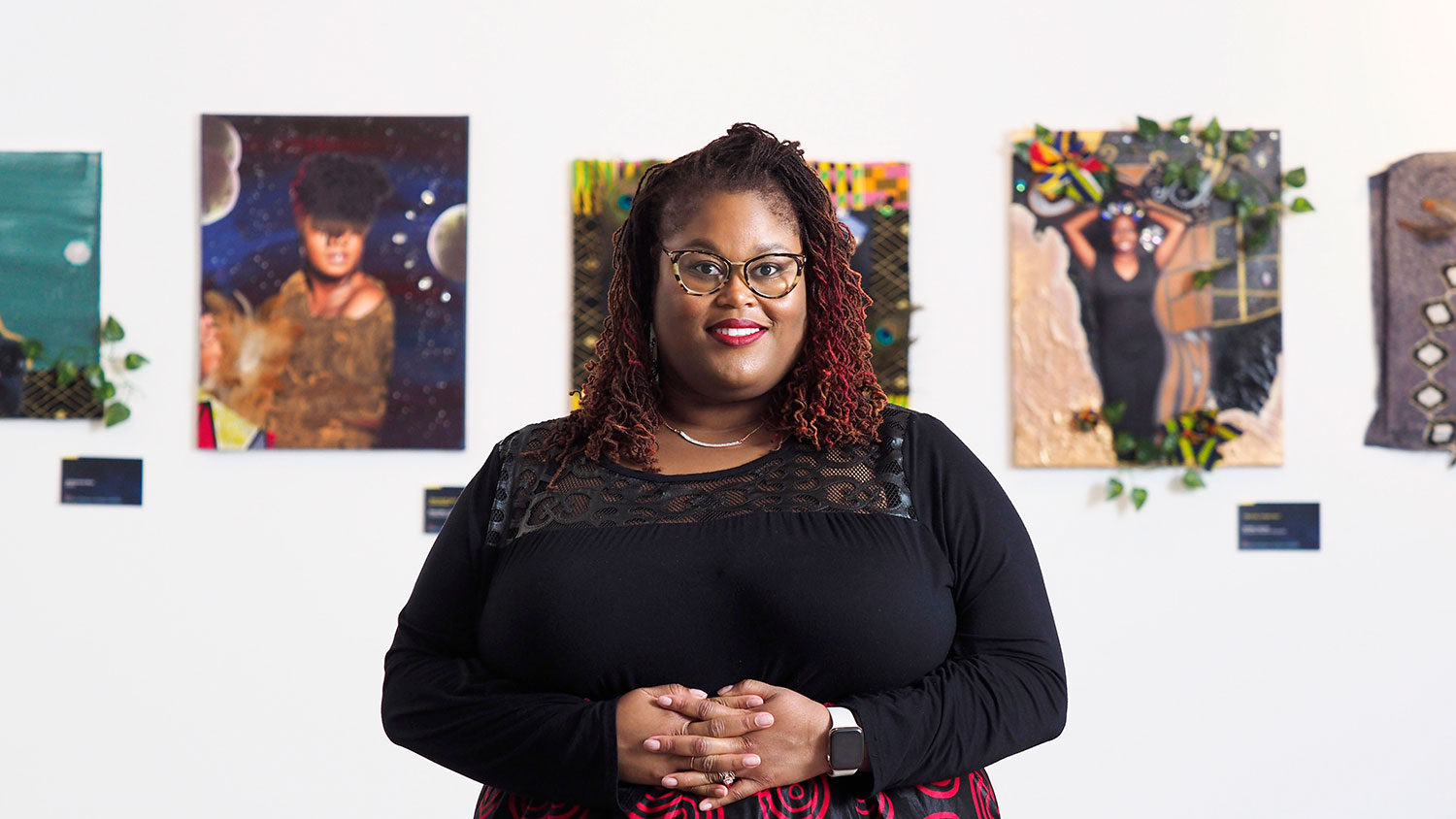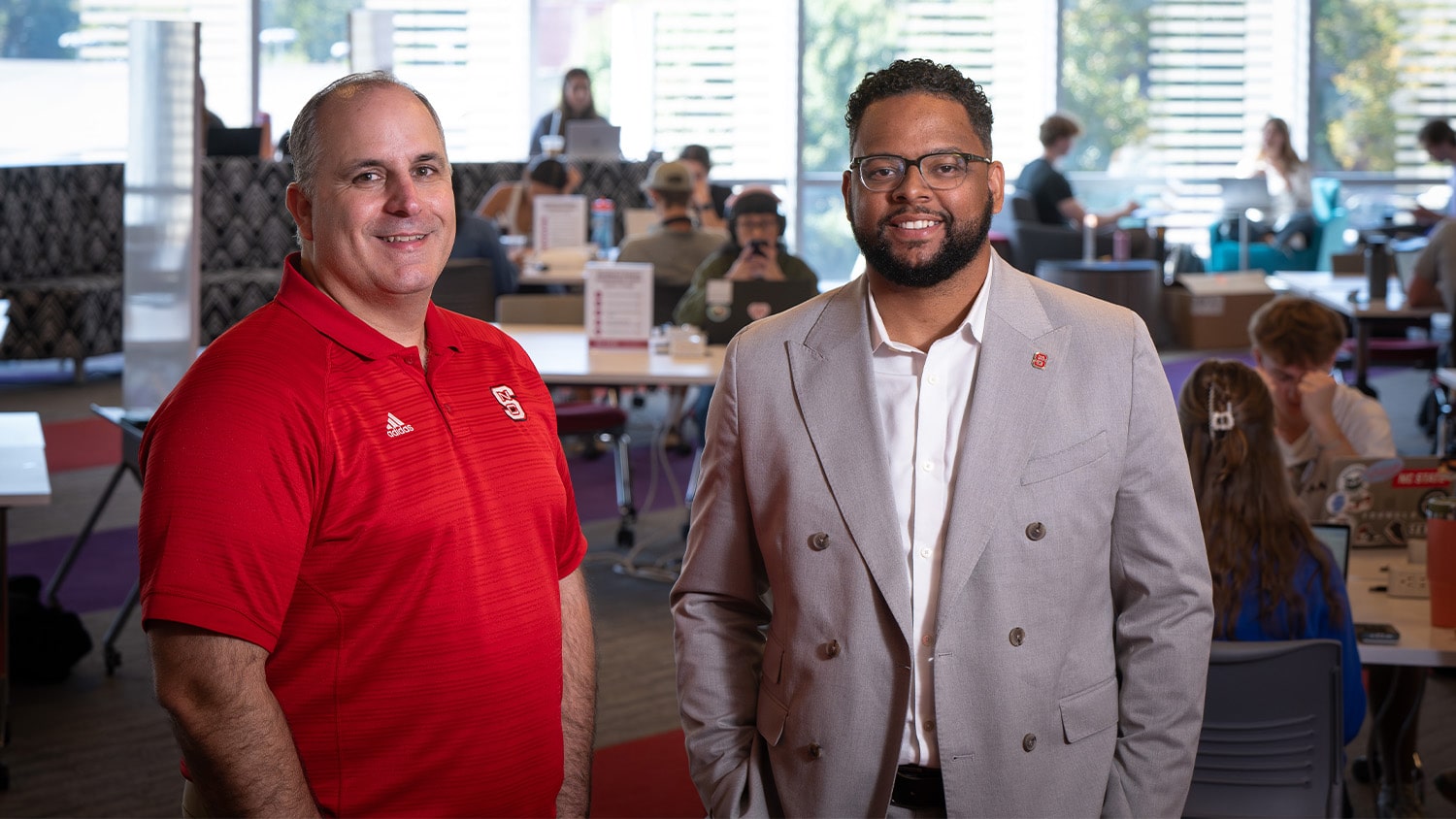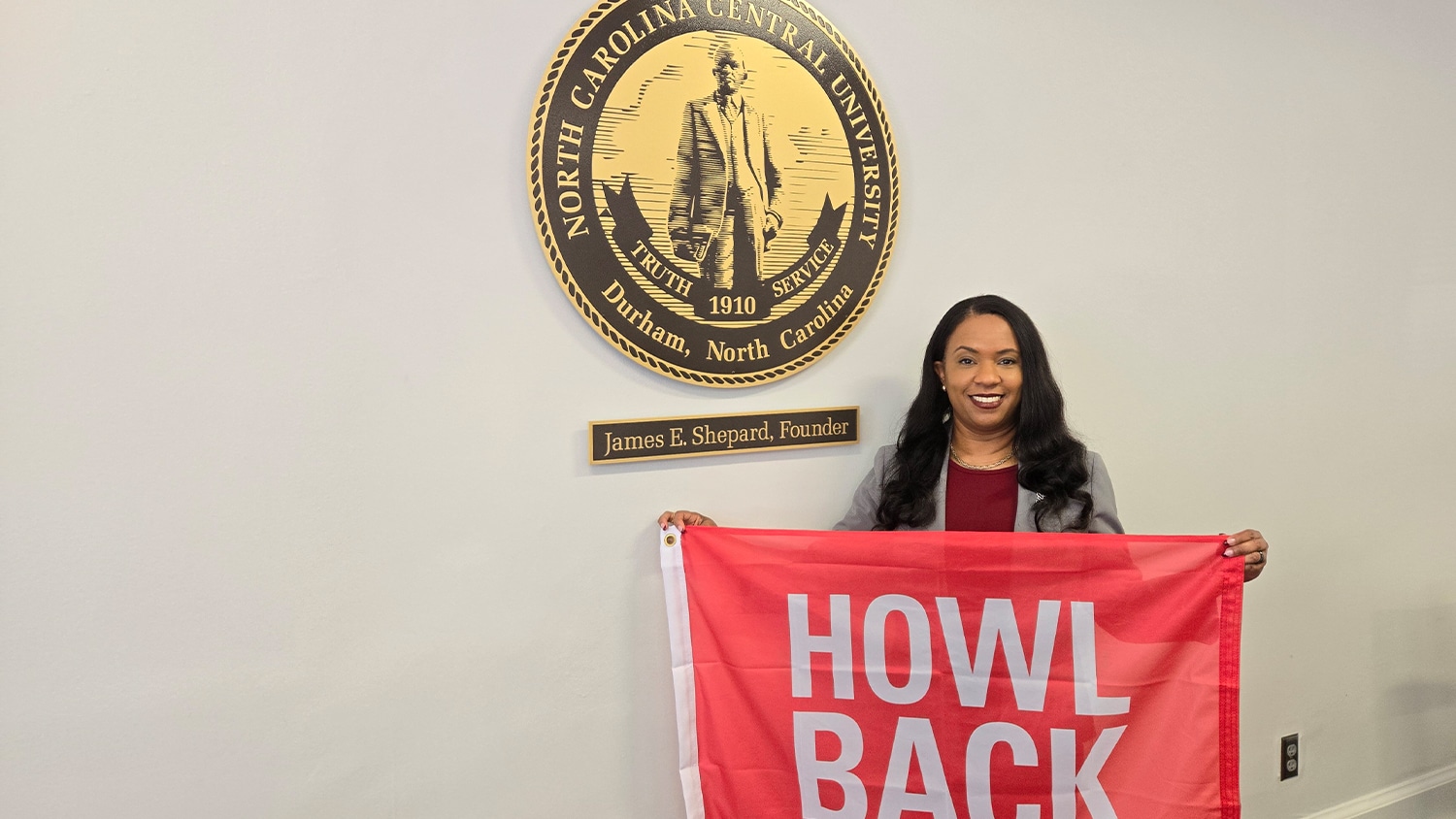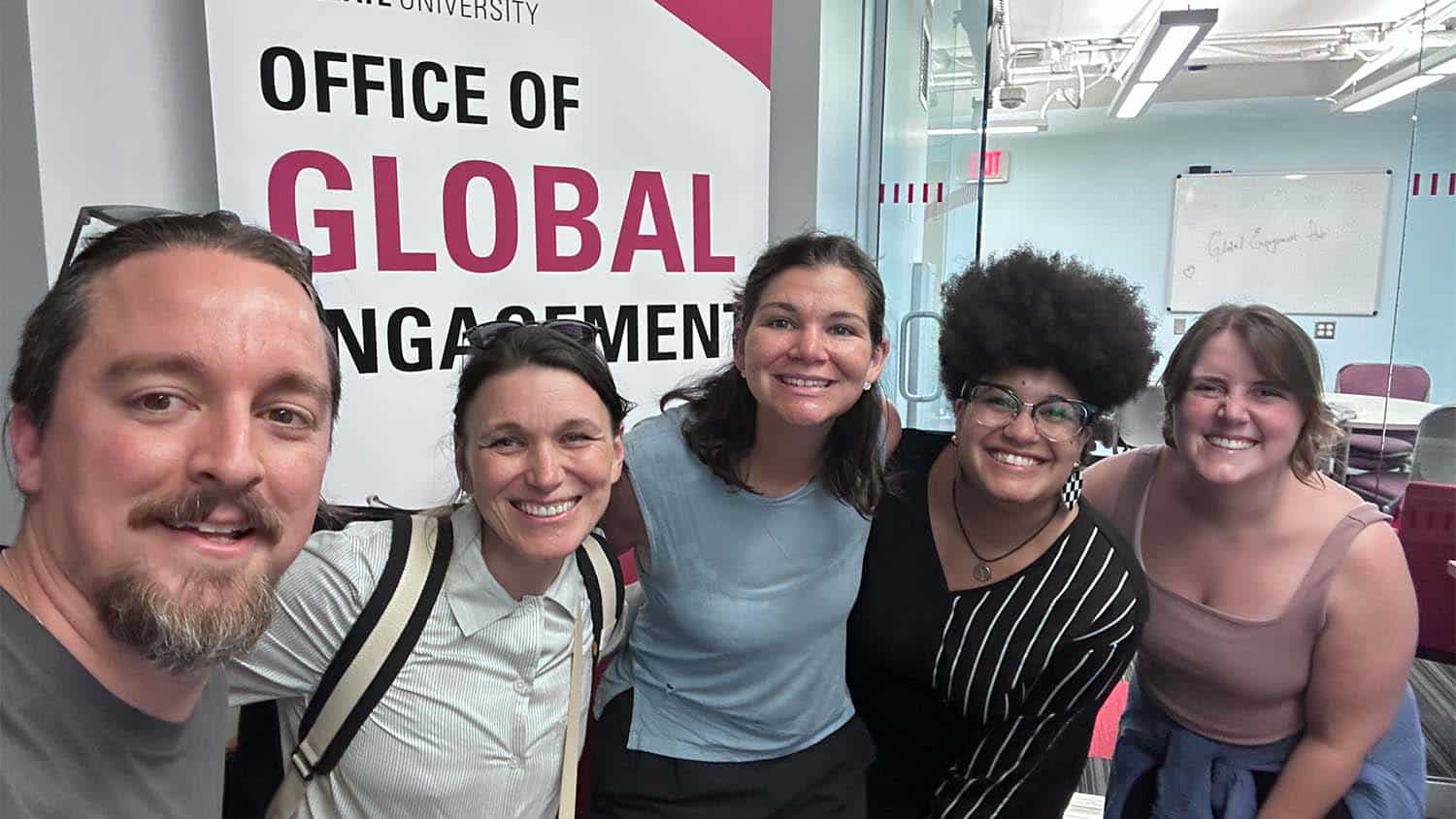Leading With Intention
As the new director of NC State's African American Cultural Center, angela gay-audre sets out to carve a fresh path for its future.

angela gay-audre’s name is lowercase on purpose. She recently changed its grammatical style to better reflect who she is, describing it as a “coming home to myself.” gay-audre is a big believer in living life with intention — and being authentic in thought and action.
The same principles apply to her career.
As the new director of the African American Cultural Center, gay-audre wants to build on its tremendous legacy. But not without careful thought and a thorough examination of the center’s history, mission and values.
“I want to explore the identity of the African American Cultural Center,” gay-audre says. “Who are we, what do we do, what is our vision? And I want to bring the campus community into that conversation.”
The first in her family to graduate from college, gay-audre earned undergraduate and graduate degrees from UNC Charlotte before coming to NC State in 2016 to pursue a doctoral degree in educational leadership, policy and human development. She joined the Women’s Center as a graduate assistant and quickly rose to the position of assistant director. In September, in the midst of working on her dissertation, gay-audre became director of the African American Cultural Center.
gay-audre epitomizes hard work, dedication, and, of course, intentionality — while radiating joy and compassion.
Read on to learn more about her journey from humble beginnings in rural Eastern North Carolina to becoming a leader at NC State.
Have you always wanted to go into counseling and advocacy?
I have always seen myself in a helping role. I have always been a natural counselor. People come to me, they tell me their stories, and I hold them and I will stay alongside them. And that is always something that has been a part of my life.
I have a master’s degree in counseling, but I didn’t want to pursue a doctoral degree in the field because counseling theories, while they’re informative, center on a very particular lens — a white lens. And my goal is to create space for all people, which means we have to center on non-dominant lenses and make room for other worldviews and experiences.
What drew you to NC State?
What attracted me to the doctoral program and the university was Dr. Tiffany Davis. She’s no longer here, but I met her during PREP, a program she designed and facilitated specifically for BIPOC folks who were interested in higher education programs. Dr. Davis wanted to create space for us within historically predominantly white institutions in such a way that allowed us to see ourselves as scholars, researchers and practitioners. It was her graceful authenticity that led me here.
Additionally, the uniqueness of DASA and OIED was really interesting to me as I’d never seen DEI work separated out in such a way at other institutions. Further, people seemed to be working together in specific ways that I resonated with, which made me believe coming to NC State was a good opportunity to expand my work, knowing there were people I could connect to and who would challenge me intellectually and impact how I approached my dissertation.
What is the focus of your dissertation?
I’m looking at how dark women, as framed by endarkened feminist epistemology, seek and know leadership identity within historically and predominately white institutions. That is, how we find and express leadership, and how we see ourselves as leaders. When I was working to develop the curriculum for the Womxn of Color Retreat, I discovered there are a lot of powerful cis and trans women of color who lead on this campus yet did not see themselves as leaders or even scholars. They didn’t see themselves as authors over their own experiences. And that’s when I realized this is a problem I wanted to examine.
Did you expect to work full-time while pursuing a doctoral degree?
No, not initially. I came here to be a full-time student. I’ve never been just a student before. I wanted to jump in and dedicate myself to the work, to this dissertation. And I should’ve known I was fooling myself. There’s never been a time in my working life when I’ve been satisfied just doing one thing.
When I was an undergrad at UNC Charlotte, I started working during the second semester of my first year. And from there I’ve always had two or three jobs or things I have dedicated myself to. But also, I come from a small town in rural Eastern North Carolina where we had to work. I didn’t come from a family that had a lot of financial resources. My first job was babysitting. My second was in the tobacco barn. It was instilled in me that you have to work, and most importantly you have to work for what you want. As low-income families know, you have to work harder for what you need.
What are your goals for the African American Cultural Center?
My first priority is building a team. When I inherited the center in September, there were no full-time staff, so we’ve been working hard to fill those positions. And after those hires, we’re going to start building.
To be intentional in our work means we will begin looking ahead: forecasting using assessment data and building outcomes from that. Programming is going to be the most immediate focus, as that is what people often see first. Then we’ll get into strategic development. I cannot wait to get to that place. We’ll be talking about the identity of the African American Cultural Center — who we are, what we do, and where we’re going.
I would love to see the center be a hub of Blackness. This is not new, though. I’ve seen this terminology in the center’s archives from years ago. What I want to add to that narrative is being a hub of Blackness in a way that doesn’t mean it’s the only place Blackness exists with fullness. Blackness as identity, as culture, as humanity, has to move beyond the walls of Witherspoon. We have to create space for faculty, staff and students, as well as our community members and campus visitors — all of us — to feel connected.
We can’t do this rebuilding siloed away, which is why it’s important for me to say again: The work of the center is to be a hub and also to expand. If it was just us (the center), we wouldn’t get anything done. It can’t be just me. It has to be everybody connected to this campus. And we all have to move with delightful intention.
How have your first months with the center been going?
It’s beautiful and stressful. It’s changing every day. I rarely do anything without thinking about it intentionally, praying over it, calling on the ancestors to guide me — and in this endeavor they are abundantly clear. The African American Cultural Center is a beautiful place to be. A place to come together with people and make connections in a way that helps us develop, in collective, what we want and what we need.
This journey has enriched and enlivened my dissertation in ways that are beyond my imaginings. And that’s what community does — It creates room for us to stretch and thicken. It allows us to be our fullest, our most whole, authentic selves, and to think about things in new, rich ways that we haven’t yet imagined.
- Categories:


